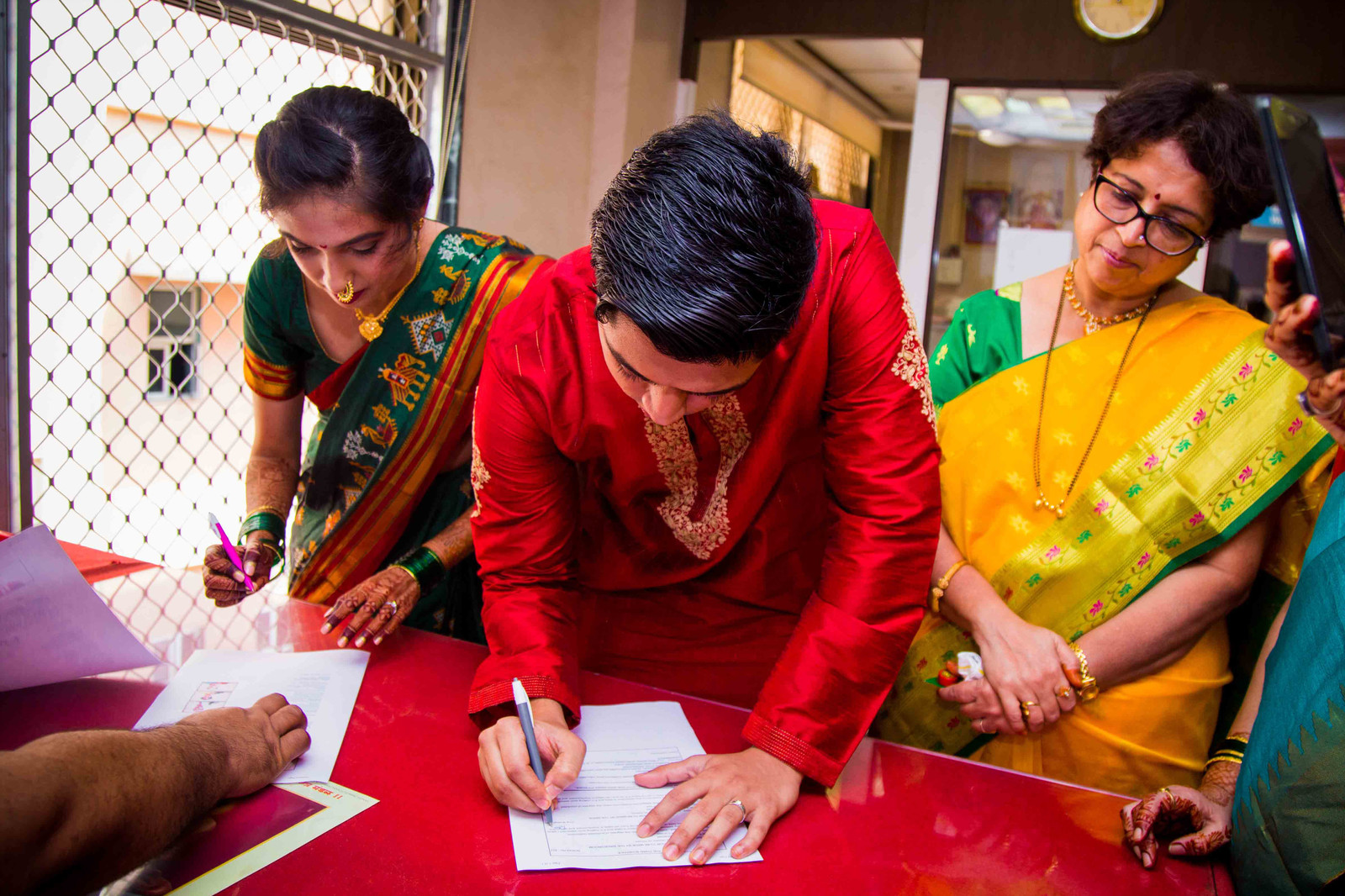Court marriage in Moradabad can be performed under either the Hindu Marriage Act 1955 or the Special Marriage Act, 1954. Under the Hindu Marriage Act 1955 a marriage solemnized by a priest can only be performed in a church or temple. The priest first needs to acquire the consent of the bride's parents by personally meeting and talking to them. Then the priest will have to perform the marriage. A recording of the wedding ceremony is then taken and kept for future use.
Under the Special Marriage Act, the authority of the court is increased and it now has the power to nullify a marriage if it finds that it was arranged without the authority of law. This has especially been used in northern India, where people tend to get married without consulting anyone. Any such act is termed as "matrimonial fraud". Under the Hindu Marriage Act the couple need to get the written consent of a mahant before they enter into matrimony. After getting this consent they can now marry anyone they want under certain conditions.
According to the Hindu Marriage Act no Hindu girl is allowed to marry a non-Hindu, or someone who does not follow the Hindu religion. Secondly a girl is not supposed to enter into a polygamous relationship. She is also not supposed to get pregnant outside marriage. In some states if a girl is not able to prove that she is married by the end of the six-year period prescribed by the Special Marriage Act then she is said to be "prohibited relationship". Such relationship in the Hindu faith is considered to be void and therefore is annulled. Court marriage in Moradabad is therefore very difficult.
Getting a Moradabad Court marriage online is much simpler and more convenient than visiting the courthouse in person. There is no need to waste time and energy while waiting in the queue. One does not even have to wait in the same queue as others. There is no chance of getting lost in the huge crowded court rooms. With these innovative procedures, getting a Moradabad Court marriage certificate has become easier by just a click of a button.
In the Hindu marriage act of "matrimony" arranged marriages in India are referred to as arya samaj. The term "matrimony" in this context refers to the ceremony wherein the two persons get legally married and it also indicates the legal union between them. Matrimony in this context does not refer to the religious marriage, but refers to the marriage conducted in the eyes of law and is considered void if the marriage does not take place in accordance to the stipulated conditions. These conditions generally include age, residence, property, caste and other social and legal requirements of both the partners.
Court Marriage is a common procedure, which has to be followed by everyone. If a marriage is not registered it is not considered valid during legal procedures such as, applying for a joint home loan. You could also be fined for not registering your marriage. It is a rule that all the marriages have to be registered whether you are having a wedding ceremony or not.
A marriage certificate is an important proof, in case there are some problems between you and your spouse in the future and a legal action needs to be taken.
Advantages of Court Marriage Certificate:-
• Certificate of Marriage is a document, which provides valuable evidence of marriage;
• Certificate of Marriage is a document providing social security, self-confidence particularly among married Women.
• Court Marriage Certificate is useful in getting the visa for the wife/husband.
• It will be helpful in claiming the Bank deposits or Life Insurance benefits when the depositee or the Insurer dies without a nomination or otherwise.
Documents required for the Performance & Registration of Court Marriage
1. Passport Size Photographs – four each of Marrying Persons.
2. Residential Proof (Voter Card / Passport / Ration Car / Driving License / Bank Passbook / Lease Deed / Rent Deed) of Marrying Persons.
3. Date of Birth Proof (Municipal Corporation Certificate, X th or XII th Examination Certificate, Passport, PAN Card) of Marrying Persons.
4. If any party is divorcee Certified copy of Decree of Divorce granted by the Court.
5. If any party is widow / widower Death Certificate of the dead spouse.
6. If any party is a Foreign Citizen or holding a foreign Passport or is having foreign residential address – Certificate of Present Marital Status of the party / No Impediment Certificate / NOC from concerned Embassy and Valid VISA.
7. Two Witnesses (Both should be major)



